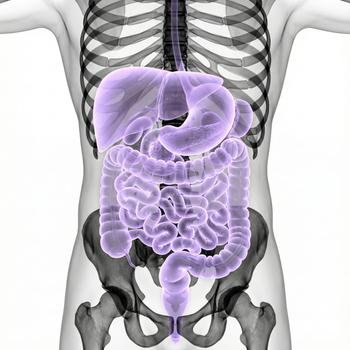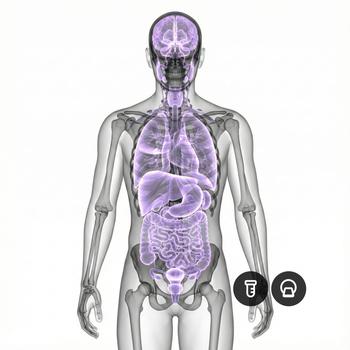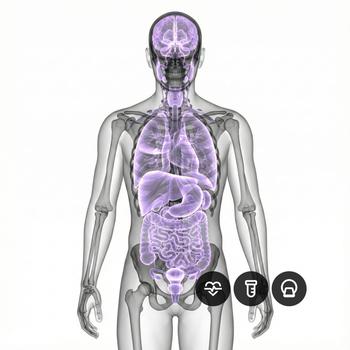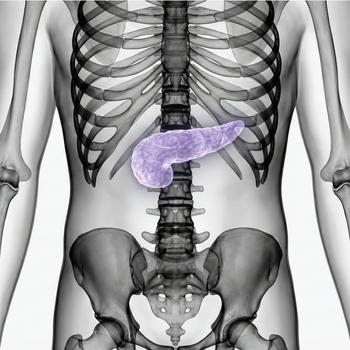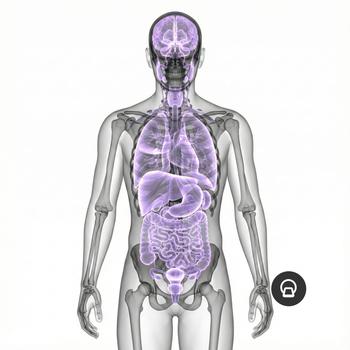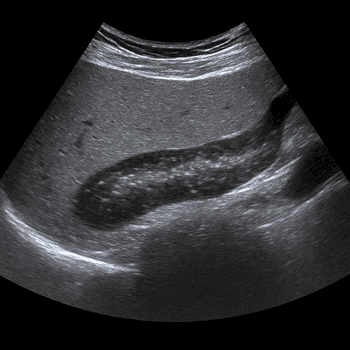Quick version
The pancreas is crucial for digestion and blood sugar regulation.
- Produces enzymes to break down food
- Releases hormones that control blood sugar
- Common problems: pancreatitis, diabetes, tumors
- Pain and weight loss can be signs of disease
- Vital organ for the body's metabolism
What is the pancreas?
The pancreas is a gland about 15–20 cm long that lies behind the stomach in the upper abdomen. It is divided into an exocrine and an endocrine part. The exocrine part produces enzymes that break down fats, carbohydrates and proteins in the intestine, while the endocrine part releases hormones such as insulin and glucagon that regulate blood sugar.
Anatomy and location
The pancreas is located deep in the abdomen, behind the stomach, near the duodenum and the liver. Three parts make up the pancreas, these are: the head, the body and the tail.
Exocrine function – digestive enzymes
The exocrine part of the pancreas produces pancreatic juice that contains enzymes such as amylase, lipase and protease. These enzymes help break down food in the intestine and facilitate the absorption of nutrients.
Endocrine function – hormone production
The islets of Langerhans (small groups of hormone-producing cells in the pancreas) in the pancreas produce insulin, glucagon and somatostatin. These hormones regulate blood sugar levels in the body, which is crucial for energy balance and metabolism.
Pancreas and diabetes
In type 1 diabetes, the insulin-producing cells in the pancreas are destroyed by the body's own immune system. In type 2 diabetes, insulin works less well or is produced too little.
Common diseases of the pancreas
The pancreas can suffer from several diseases, including pancreatitis (inflammation), cysts, tumors and cancer. All of these conditions often require prompt medical treatment.
Examination and diagnosis of the pancreas
Because the pancreas is located deep in the abdomen, imaging and laboratory tests are often required to detect problems. Below are common methods:
- Blood tests: Measurement of amylase and lipase– enzymes that are often elevated in inflammation (pancreatitis).
- Ultrasound: can show swelling, cysts, or tumors. However, intestinal gas can impair image quality.
- Computed tomography (CT): Provides detailed images and is often used when pancreatitis or a tumor is suspected.
- MRI (magnetic resonance imaging): Provides high-resolution images of the pancreas and bile ducts, especially useful in tumor investigation.
- Endoscopic ultrasound (EUS): An ultrasound that is done from inside the gastrointestinal tract via an endoscope, which provides closer images.
- ERCP (endoscopic retrograde cholangiopancreatography): Used to examine and sometimes treat blockages in the bile and pancreatic ducts.
Relevant symptoms
- Pain in the upper abdomen or back
- Nausea and vomiting
- Unintentional weight loss
- High blood sugar or diabetes
- Jaundice (due to cancer or tumors)
Related conditions and diagnoses
- Acute or chronic pancreatitis
- Type 1 and type 2 diabetes
- Cancer in the pancreas
- Pancreatic cysts
- Insulinoma (hormone-producing tumor)






















